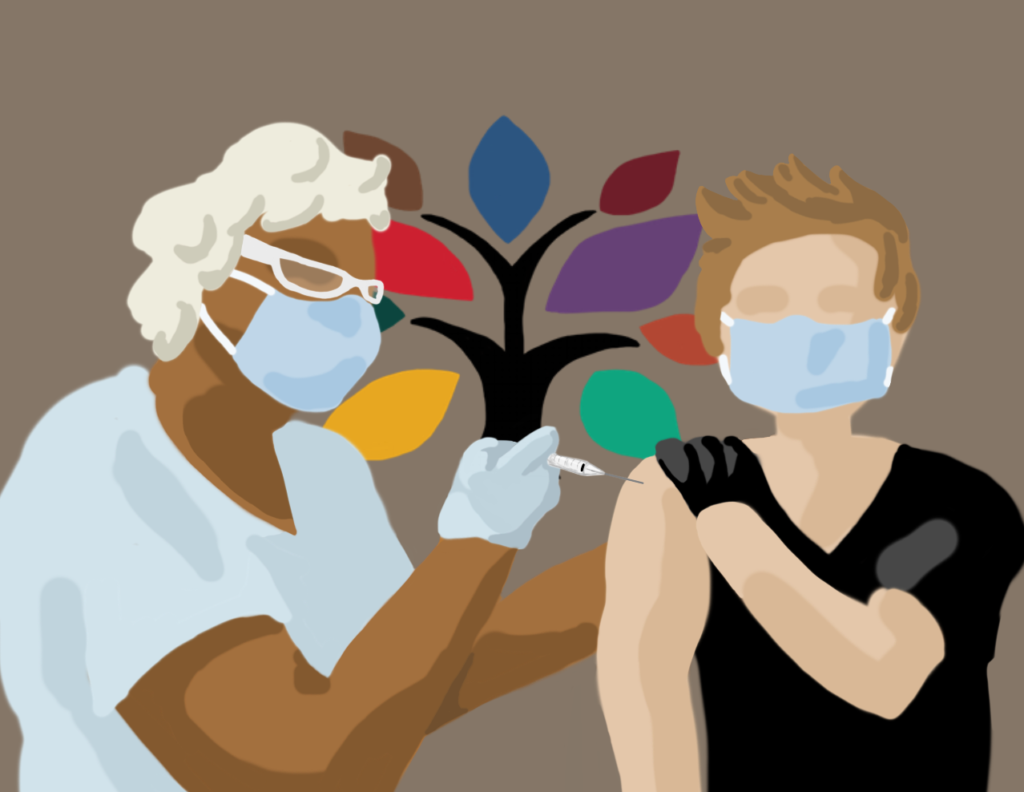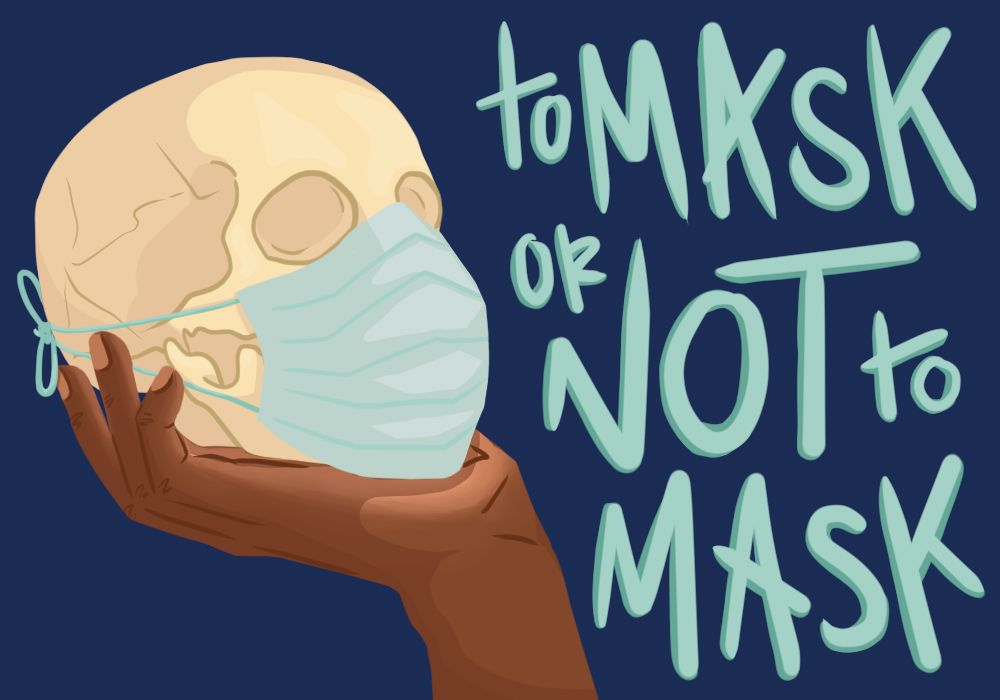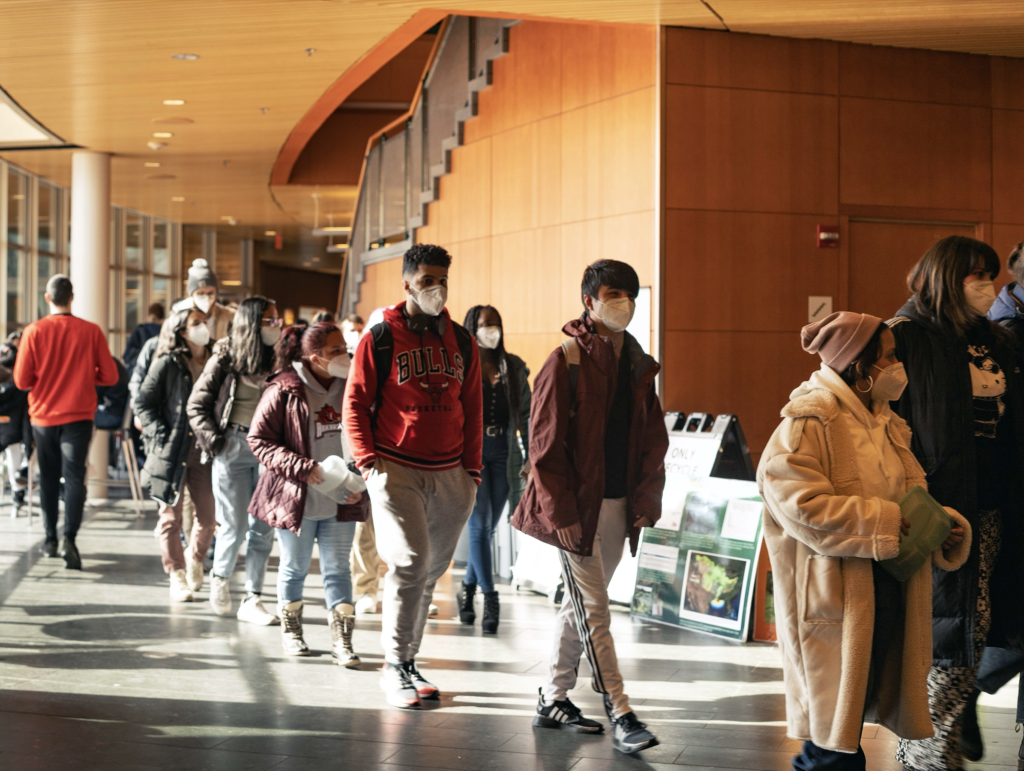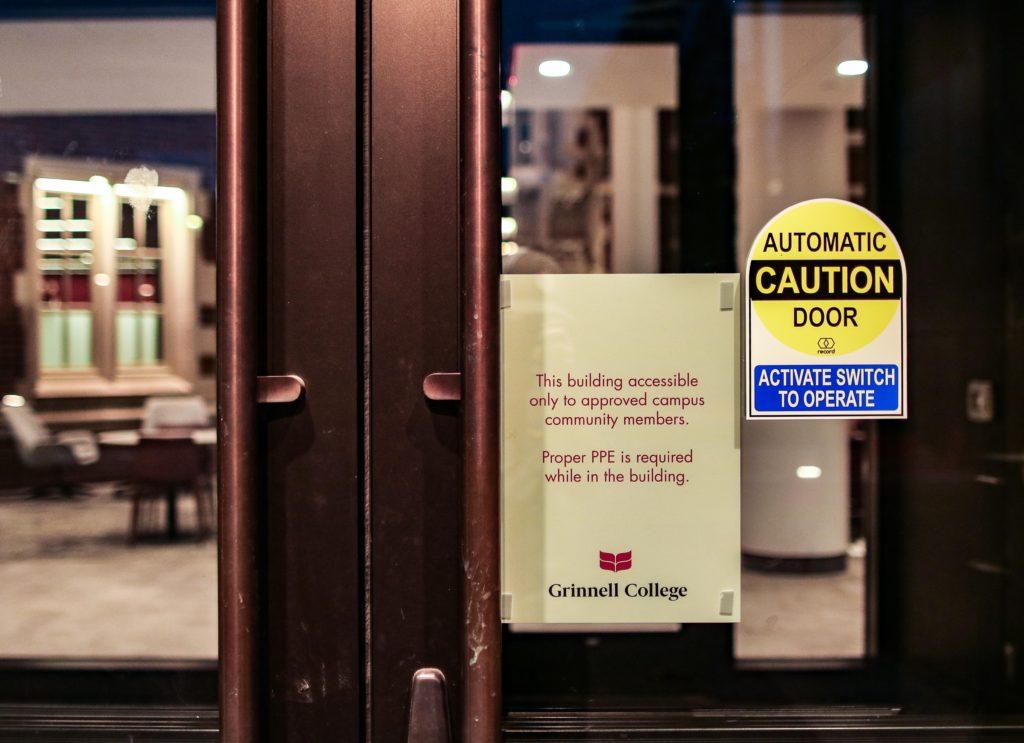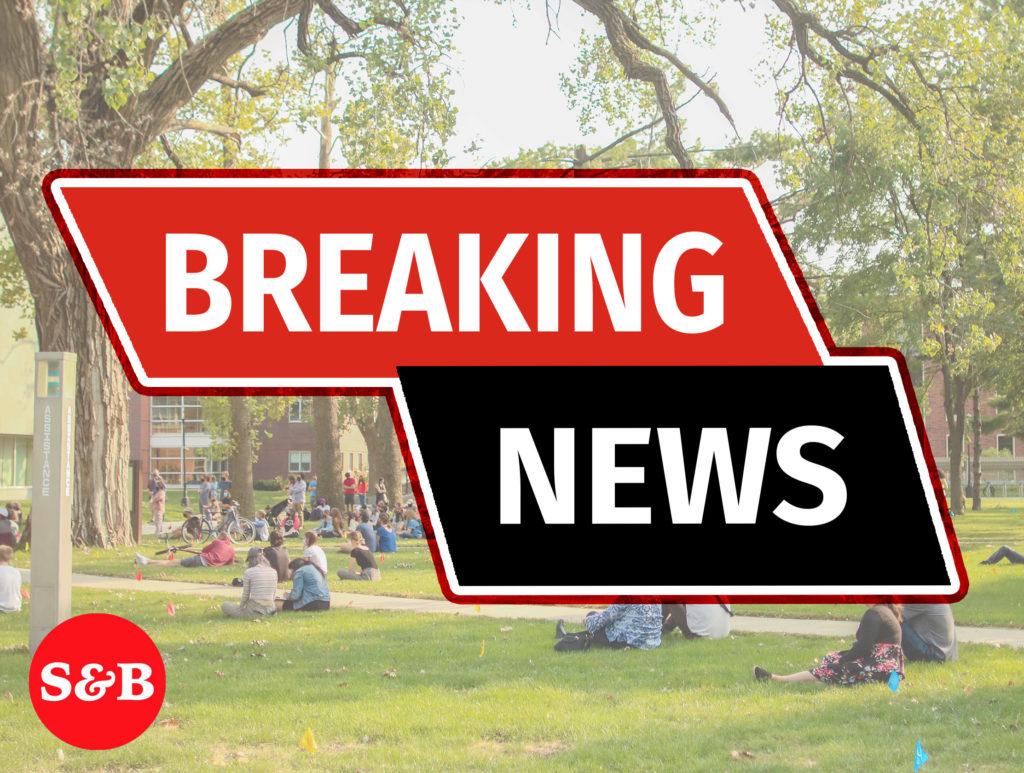By Griffen Kernan
kernang@grinnell.ed
Since the new mask-optional policy went into effect at Grinnell, the student body has been divided over the appropriate personal and campus-wide approach to masking should be. While most students seem relieved that the mask mandate has since become optional for the student body, there are still many concerns and gray areas regarding the policy.
Nikki Kreutzain `23, who lives and works closely with immunocompromised folks, is among those who remain masked up in an attempt to protect people who are near to them.
“Just because we have low COVID-19 numbers right now doesn’t mean that you still can’t get really sick. Even though the masking policy is now optional, my friends work with folks living at the Mayflower, and I don’t want to come from the college environment and get other people ill,” said Kreutzain.
She also worries about the return of students from spring break and what that could mean for COVID-19 transmission rates on campus.
Sam Rudenberg `25, who is also still wearing his mask on campus, chose to do so for similar reasons. As someone who has immunocompromised family members back home, the choice to remain masked strikes him as an opportunity to make uncomfortable and/or high-risk students feel safe and welcome on campus.
“Although I don’t know specific people who are immunocompromised that I interact with on campus on a daily basis, I’m still hoping that my actions are paying off for them,” said Rudenberg.
Rudenberg shared many of the same concerns about securing the Grinnell immunity “bubble” and preventing the spread of COVID-19 after students return from spring break, especially because of College’s current lack of communication about procedure after break.
“I feel like it would make sense to hear something, anything, from the College about what’s happening after spring break. I mean, even if they don’t do another mass testing, at least they should clear it up with us and let people know what their approach is going to be,” said Rudenberg.
Even though many students on campus remain skeptical about unmasking while interacting with others on campus, there are also those who have already chosen to ditch their masks.
Maddie McCabe `22, who is also enrolled as a graduate student at the University of Iowa’s College of Public Health, has chosen to embrace the optionality of mask wearing and not wear one. Her personal decision to unmask is informed by a combination of declining COVID-19 case numbers and deaths in the state of Iowa, a 99 percent triple vaccination rate on campus and the College’s successful response to the virus, all which she says have rendered mask-wearing unnecessary on campus.
“Maybe in a space outside of Grinnell I might feel a bit more unsafe, but I feel as we have taken all of the necessary steps on campus to be really cautious and I think that we are at a point where it’s safe to unmask if that is what you feel comfortable with,” she said.
Her decision to unmask is also, like many other fourth-year students, informed by a yearning for a semblance of normalcy going into her final two months at Grinnell.
“Being a fourth year and being away from campus for the last year and coming back to the restrictions this year, in my case, just doesn’t feel right.”
She, too, worries about the potential of a COVID-19 outbreak after students return to campus from spring break. She has concerns echoing Rudenberg’s and Kreutzain’s surrounding the potential loss of an “immunity bubble,” with the opened potential of unmasked transmission of COVID-19 to students returning from break, especially without a vocal plan to test students upon return to campus like at the beginning of this semester.
“We’re kind of breaking that immunity bubble with people leaving for spring break, so I hope we do something similar to what we did coming back from winter break, where people were tested when they came back and we were really cautious, requiring them to wear the N95 masks, maybe for a couple of weeks we can do that,” said McCabe.























































